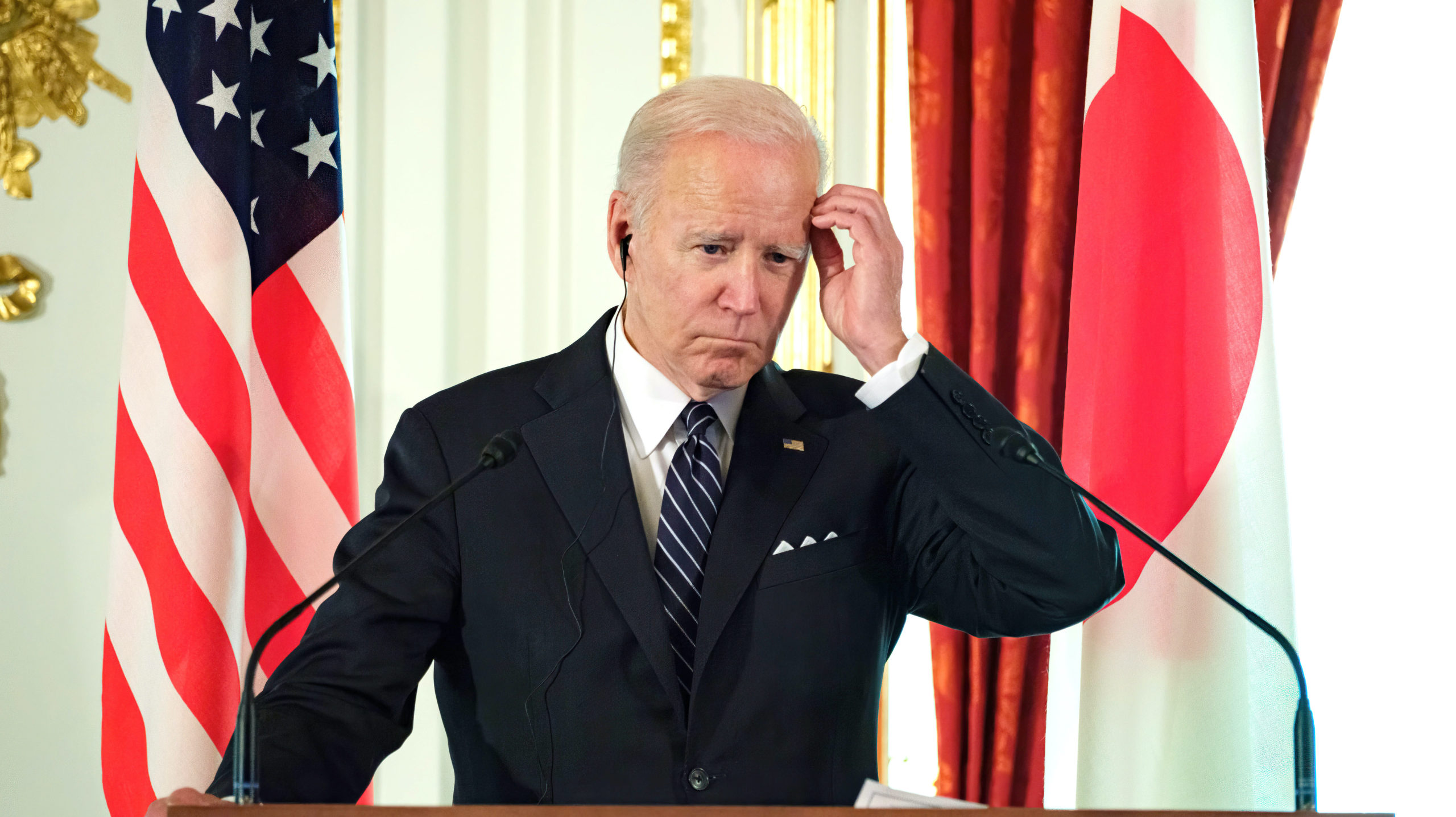During his first trip to Asia, President Biden made a statement in response to a reporter’s question in Tokyo that has made headlines around the world. The answer was an unequivocal “yes,” as to whether the U.S. would become involved militarily if China attacked Taiwan. Though the President’s team has since tried to walk this back, Joe Biden has a certain history with verbal gaffes and has misstated U.S. policy regarding Taiwan before. Nonetheless, this answer deserves to be taken with the utmost seriousness.
If intentional, Biden’s statement represents a reckless and unwarranted departure from the long-time policy of “strategic ambiguity,” which in tandem with the One China policy, has helped to maintain peace in the Taiwan Strait for many decades. Given China’s growing military power, its proximity to Taiwan, and Beijing’s unequivocal statement that the Taiwan issue forms a red line or “core interest,” for China, the move away from strategic ambiguity toward “strategic clarity” — as some within the Beltway have been advocating — would be exceedingly dangerous.
For the U.S., there are simply no national interests in Taiwan that could possibly justify a U.S.-China war. The island is not in any way critical to the defence of the United States, nor of its treaty allies. Indeed, Taiwan does not have a defence treaty with the United States, and this is by design. A half century ago, Nixon and Kissinger understood very clearly that accepting a “One China” policy was the price Washington had to pay to have a normal working relationship with Beijing, and this approach has served U.S. interests well. While Taiwan’s political autonomy may be welcome, defence of democracy would not justify the immense military risks required to defend Taiwan. Indeed, if the U.S. wants to defend human rights in the Asia-Pacific, the Philippines or Vietnam might be the countries to prioritise in this respect.
What are the military risks? A series of war games has demonstrated that the U.S. would likely lose a conflict with China over Taiwan. This is not a mystery, but a pure function of geography, wherein Beijing can amass significantly more firepower immediately off its coast than could the U.S. and its allies. To boot, Beijing would be prepared to accept major losses in such a campaign, but the same could not be said for Washington given that Taiwan is not a vital interest. Indeed, the vast majority of Americans could not find Taiwan on a map.
It seems, unfortunately, that too many American strategists appear to be taking the wrong lessons from the present war between Russia and Ukraine. There are many reasons to think Beijing would be much more successful than Moscow, due to China’s ambitious and well-funded military modernisation. Also, Taiwan is about 15 times smaller than Ukraine, allowing for a much greater concentration of firepower. The island could be quite easily isolated, and there are no guarantees that a U.S.-China war would not escalate, including to the nuclear level.
True, U.S. weapons transfers could be helpful on the margins, but are unlikely to prove decisive. America’s best approach will be stick with its ambiguous approach, and to make much greater efforts to give substantive support to a genuine One China policy. It could do so by helping Beijing and Taipei to find a creative diplomatic compromise that prevents the nightmare of Cross-Strait conflict from coming true. Suggesting that America would offer military support to Taiwan, however, will only threaten to poison US-China relations.











Join the discussion
Join like minded readers that support our journalism by becoming a paid subscriber
To join the discussion in the comments, become a paid subscriber.
Join like minded readers that support our journalism, read unlimited articles and enjoy other subscriber-only benefits.
Subscribe